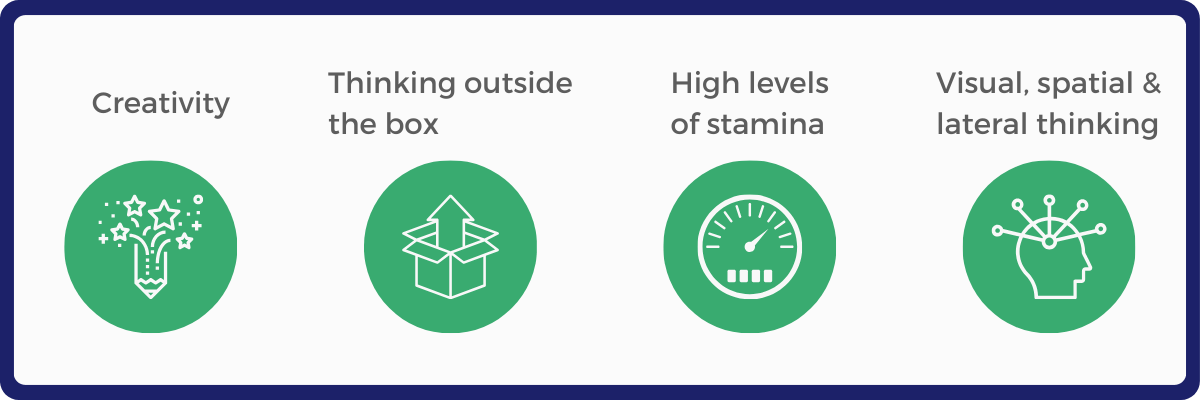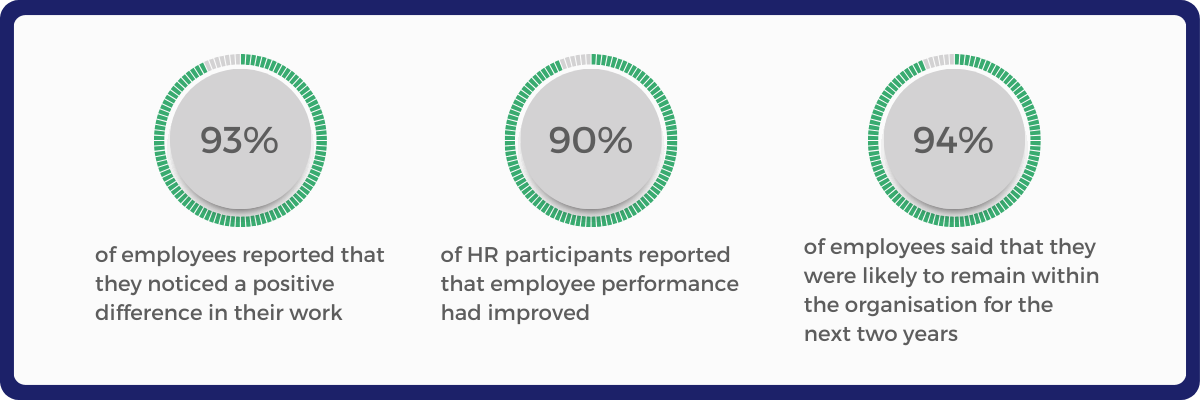Why Embracing Neurodiversity in the Workplace is Good for Business
As a Consulting Business Psychologist at Lexxic, I’m constantly reminded of the many benefits that being neuro-inclusive can bring to an organisation. However, we still see many clients encountering challenges when it comes getting buy-in from senior leadership and making tangible changes in the workplace. With this in mind, though we could talk for hours and hours about the value of neurodiversity in the workplace, we thought we’d explore some of the key benefits that neuro-inclusion and embracing neurodiversity can bring to your organisation!
Tapping into Valuable Skills
Though every individual is different, many neurodivergent employees possess a vast range of valuable and unique skills that can benefit their workplace in so many ways. Some common talents that we often see, include:
These different skills can help organisations to see an improvement in:
Innovation
Broader insight and understanding
Better problem solving and decision making
As organisations work to become more neuro-inclusive, we are starting to see the neurodiversity narrative change away from the deficit model (often used to talk about neurodiversity deficits alone), and towards the value-added model:
The Harvard Business Review has described neurodiversity as a ‘competitive advantage’.
Steve Hatch, Vice President for Facebook Northern Europe, described neurodiversity as an ‘incredible superpower’.
LinkedIn has even added ‘Dyslexic Thinking’ as a personal skill that you can add on your profile!
The neurodivergent talent pool is key to future-proofing organisations, beyond the workforce of today. In a world with AI and automation, the skills that many neurodivergent individuals possess are the skills that organisations need to keep them ahead of the game, as outlined by the World Economic Forum (The value of dyslexia, EY). Ben Cooke, lead contributor to ‘The value of dyslexia’ report by EY, reported that ‘Organisations that are able to crack the code between neurodiversity, organisational culture, and workforce augmentation, will no doubt be at the forefront of driving even greater business value.’
We can see several positive examples of organisations beginning to adapt their workplaces to attract neurodivergent talent and enable them to thrive:
Supporting Wellbeing and Psychological Safety
There are several studies that show that there are higher co-occurrences of neurodiversity and mental health conditions such as anxiety and depression. (Lexxic, Mental Health and Neurodiversity in the Pandemic, 2022). However, what we often see is that these challenges are due to, or exacerbated by, discrimination or a lack of support in the workplace.
Neurodivergent individuals may not feel safe talking about their neurodifference in the workplace in the first place. The Neurodiversity in Business report (2023) found that 65% of neurodivergent employees were worried about stigma and discrimination from management, whereas 55% were worried about stigma and discrimination from colleagues. This could be due to the stigma attached to neurodifferences, and the perception of neurodivergent individuals not being as able as neurotypical individuals, which is a consequence of the deficit model which talks about neurodiversity deficits alone.
It could also be due to past traumatic experiences of discrimination, possibly from school or from a previous workplace or manager, which can lead to people not feeling comfortable talking about their neurodifferences in work.
This may be compounded by a lack of manager confidence in supporting those who are neurodivergent, with 50% stating that they would be uncomfortable employing or line managing someone with a neurodifference (The Power of Difference, ILM). This, in turn, can lead to the vicious cycle of neurodivergent employees masking their differences at work, leading to challenges in performance and a major impact on their wellbeing, such as experiencing stress, fatigue, or burnout.
Creating neuro-inclusive workplace environments can create psychological safety for neurodivergent employees, who may then feel more comfortable talking about their neurodifferences, and asking for support or adjustments to their working environment. If we can increase the levels of disclosure in the workplace, then we can help neurodivergent employees to work in a way that suits them, helping them to ultimately thrive in the workplace, and:
Feel supported
Reduce stress, fatigue, and burnout in their role
Reduce challenges with retention and presenteeism, which can be costly for the business!
Increase productivity for the individual and the business
Organisational Productivity and Performance
We often see that organisations who are able to offer flexible ways of working and workplace adjustments to suit all workplace preferences are also able to increase their organisational productivity and performance.
Siemens found that neurodivergent employees can increase productivity by nearly 50% resulting in increased profits and customer satisfaction.
JP Morgan Chase’s Autism in Work program found that their neurodivergent new hires were 48% more productive than neurotypical experienced colleagues in similar roles.
At Lexxic, we conducted our own impact study in 2020, looking at the impact of our 1:1 coaching and assessment services for neurodivergent employees, which revealed:
What Can Lexxic do to Help?
Lexxic are leaders in empowering neurodiversity in the workplace, with a proven track-record of over 15 years, working with organisations around the world. We believe that all minds belong, and it is our mission to inspire a working world that embraces neurodiversity and values the unique talents of neurodivergent individuals. We can help your organisation to develop its knowledge and understanding of neurodiversity, and the many benefits neurodivergent talent can bring to your business through our range of neurodiversity products and services.
Some of our most popular services include:
If you’re interested in taking the next step in making your organisation neuro-inclusive, get in touch with our team today either via the links above, or you can contact us below to book in a chat with our friendly team!
This blog was written by…





